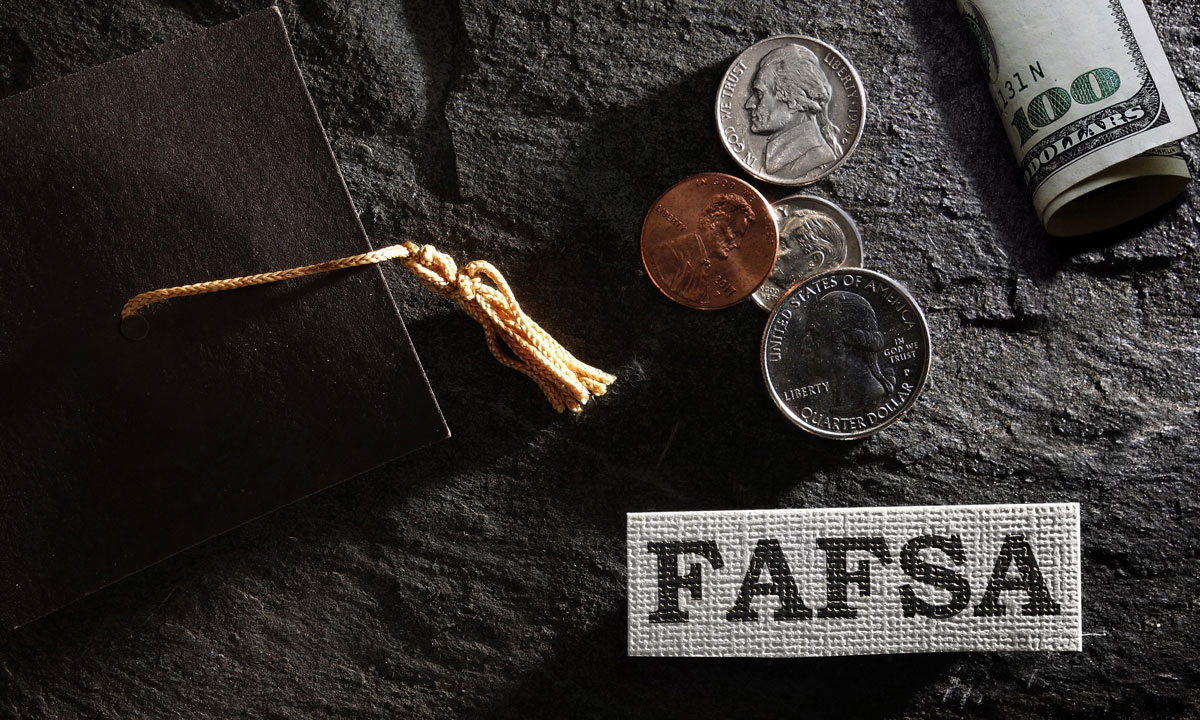West Virginia Gov. Justice Declares State Of Emergency Over FAFSA Issues
Declaration allows students to bypass federal application in order to receive state student aid.

Get stories like this delivered straight to your inbox. Sign up for The 74 Newsletter
Citing issues with the federal government’s rollout of a new application for student aid, Gov. Jim Justice on Tuesday declared a state of emergency and suspended a requirement that college-bound high school seniors fill out the Free Application for Federal Student Aid in order to receive state financial aid, including the Promise Scholarship and the Higher Education Grant Program.
The FAFSA form is required for applying for federal student aid and used to determine a student’s financial need. The form recently went through a top-to-bottom overhaul — its first massive revamp in more than 40 years — in an effort to streamline the process.
The changes are supposed to result in more students being eligible for financial aid, especially low-income students. The new FAFSA went live in January, three months later than the application is typically available, and has been plagued by a number of glitches and problems that have caused further delays.
Justice said Tuesday the issues with the FAFSA have resulted in a 40% reduction in West Virginia high school FAFSA completion rates and have left students wondering if they’ll be able to go to college.
“So the way around this is for the governor to declare a state of emergency … in education that we can bypass this FAFSA stuff and we can at least get on with getting our kids the state funding,” Justice said during his administration briefing Tuesday.
Under the emergency proclamation, students who apply for and qualify for the Promise Scholarship by Sept. 1, 2024, will receive an award of up to $5,500 for the 2024-25 academic year. Students who completed a 2023-24 FAFSA who qualify for the need-based Higher Education Grant, will receive up to $3,400 for the fall semester.
Students who don’t have a previous FAFSA on file but are eligible for SNAP, TANF, Medicaid, CHIP, Child Care Subsidy Program or WIC can show their eligibility letter to their higher education institution’s financial aid office to receive the Higher Education Grant.
In a news release, Sarah Tucker, the state’s chancellor of higher education, said the cost of college is one of the biggest hurdles students — especially low-income students — face when planning for education after high school.
“That’s why our state has invested so strongly in our own financial aid programs — which, combined, total more than $100 million each year for West Virginia students,” she said. “I thank Governor Justice for his strong leadership and allowing students to access these funds this year despite their FAFSA status. And I encourage students to continue working to complete the FAFSA so that they can get as much money from other sources, including the federal government, as possible.”
The federal Department of Education on Tuesday encouraged students to fill out the FAFSA, saying that issues with the application have been resolved, the Washington Post reported.
Justice encouraged students and parents to call a state hotline at 1-877-987-7664 or visit https://www.collegeforwv.com for more information and assistance with applying for aid.
West Virginia Watch is part of States Newsroom, a nonprofit news network supported by grants and a coalition of donors as a 501c(3) public charity. West Virginia Watch maintains editorial independence. Contact Editor Leann Ray for questions: info@westvirginiawatch.com. Follow West Virginia Watch on Facebook and Twitter.
Get stories like these delivered straight to your inbox. Sign up for The 74 Newsletter

;)